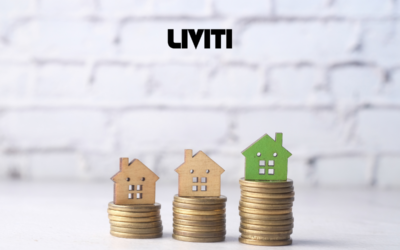As the End of the Financial Year (EOFY) approaches rapidly, you could enjoy a cash boost if you know what to include in your tax return. We’ve put together a checklist to maximise tax time benefits!
We know that declaring taxes can be overwhelming and confusing. To make your life a little easier, we’ve created a guide to help you.
People often fail to realise that their income does not always depend on their employer or regular income. Some other sources of income that are sometimes overlooked are:
- Lump sums
- Termination payments
- Bank interest earned
- Dividends
- Employee share schemes
- Rental income
- Capital gains
- Cryptocurrency gains
So why is it important to factor in all forms of income? It is important to declare all income streams as the ATO will ask you to pay your outstanding tax liabilities plus interest on late payments and any other penalties you may have.

Now that we’ve covered what streams of income you should declare, let’s move on to what you’re really here for – tax deductions.
Deductions can be one of the most confusing and debated areas of tax returns. Deductions can be expenses you’ve paid, though are not being reimbursed through your income. These might include:
- Home office expenses – furniture, lighting, stationery etc
- Self-education and professional development
- Tools, equipment, uniforms, protective clothing
- Work-related deductions – public transport costs, petrol costs
- Investment income, expenses, such as margin loans and financial adviser fees
- Even donations above a certain amount!
Now, we covered a few items you might be overlooking when filing your tax return. Let’s explore how Covid has affected your tax return and what you could include to maximise your tax return this year!
How do the impacts of Covid-19 affect the Financial Year?
Since Covid-19 has shaken up routines and how we work, the ATO has made it easier to claim deductions that reflect our new working environment. Some of these home office expenses include:
- Phone and internet
- Cost of heating, cooling and lighting of the office space
- Printing and stationery
- Equipment – laptops, monitors, keyboards, mice, printers and furniture

So does owning a property impact your tax return?
One benefit of investing in property may allow you to claim several specialised tax deductions you can choose to declare, which include;
- Repairs and maintenance fees
- Interest charges & upfront costs on your home loan – such as establishment fees, stamp duty and Lender’s Mortgage Insurance (LMI)
- Home insurance
- Strata fees
- Negative Gearing: If your property is negatively geared, you can offset your loss against other taxable income, such as your salary, to reduce your overall taxable income for that year. Despite your loss in principal, your home should still increase in value over time, meaning you could still profit from selling it.
Your property is positively geared if you earned more income than you spent on expenses in the financial year. In this case, you may be subject to tax on your property income. But if you spent more on fees than you received in revenue, your property could be negatively geared, which would reduce your taxable income.
Some property investors choose a negative gearing strategy to help them enjoy tax benefits in the short term and count on the property’s capital growth to make up for losses over a longer period.
Other things you should consider when maximising tax returns on investment property are:
- Capital improvements you’ve made over the financial year
- Selling a poorly performing investment that no longer meets your needs to offset the capital gain from an investment you made during the year. In addition to triggering a capital loss, you may also be able to invest in new investment opportunities, allowing you to reduce your tax liabilities.

Maximise your tax return with these tips above. Making the most of your yearly tax return can help you reach your goals sooner, whether saving for a property or paying down debt.
Booking a Discovery session with us and we’ll tailor a property investment strategy to help you minimise your tax and maximise your tax return through these reductions. You can contact us to find out more!




